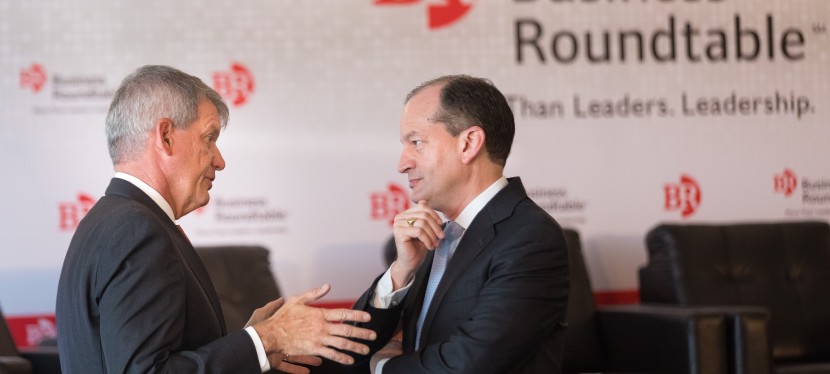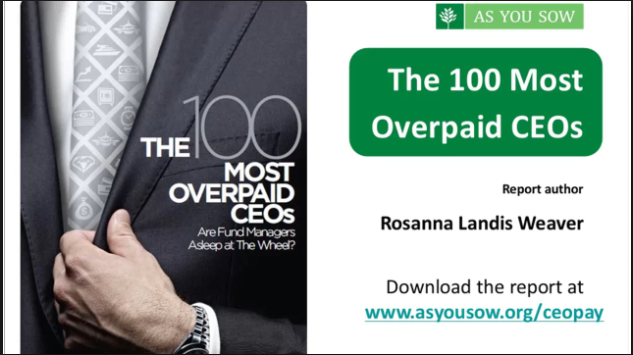This is the first of a series on the 2020 shareholder meetings
Chevron Corp.’s busy annual shareholder meeting this year featured seven shareholder proposals, on topics ranging from lobbying, climate, and human rights. Cindy Bohlen of Riverwater Investments and Mary Minette of Mercy Investment Services co-filed the human rights proposal led by Sister Nora Nash, OSF, asking the company to provide a report on Chevron’s effectiveness to prevent, mitigate, and remedy human rights impacts of its operations. We were pleased to have received a vote of 17% for a first-year proposal. Other proposals were presented to the company during the AGM by notable figures: Alec Baldwin, Roger Waters, and Jody Williams, which focused on governance issues, and pointed to Chevron’s 50-year involvement (through its acquisition of Texaco) in toxic pollution in Ecuador.
Another resolution focusing on climate lobbying garnered a 53%, majority vote. The proposal asked the Company for a report explaining how it ensures its lobbying activities are aligned with the Paris climate accord and the goal of limiting global warming. This majority vote agrees with the investor push for companies to be more transparent about their lobbying activities, especially through their membership in trade associations.
Recent news highlights why this resolution, and this vote, are critical for the Company. Amid the Black Lives Matter protests, news reports tie Chevron to a public affairs firm urging journalists to examine how green groups were claiming solidarity with black protesters while backing policies which would “hurt” minority communities. Naomi Oreskes, a Harvard University history professor and the co-author of “Merchants of Doubt” said that it is “remarkable that the Company tried to leverage national unrest about systemic racism and police violence to promote an expansion of oil and gas drilling.” While Chevron has denied the claims of being a part of this campaign, it raises the question of Chevron’s public statements supporting the Paris Agreement, while its lobbying activities send the opposite message.
Additionally, the District of Columbia filed a lawsuit against Chevron and other oil and gas companies for “systematically and intentionally misleading” consumers about the role their products play in causing climate change.” This lawsuit is of another way, of many, of which stakeholders are trying to hold the company accountable for its actions.
SGI members are calling on Chevron and other corporations to respect human rights. As a member of the Business Roundtable, Chevron signed on to the new statement of purpose for corporations to serve all stakeholders. It’s time for Chevron to live up to their rhetoric!








